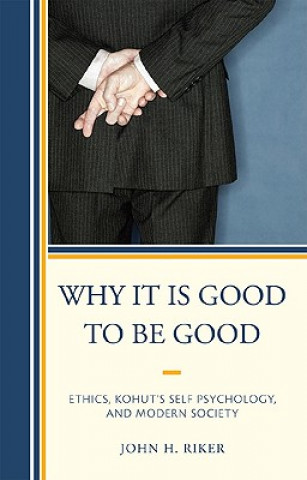
Code: 04916560
Why It Is Good to Be Good
by John H. Riker
In Why It Is Good to be Good, John H. Riker argues that modernity, by undermining traditional religious and metaphysical grounds for moral belief, has left itself no way to explain why it is personally good to be a morally good pe ... more
- Language:
 English
English - Binding: Hardback
- Number of pages: 194
Publisher: Jason Aronson Inc. Publishers, 2010
- More about this

124.07 €

Low in stock at our supplier
Shipping in 10 - 14 days
Potřebujete více kusů?Máte-li zájem o více kusů, prověřte, prosím, nejprve dostupnost titulu na naši zákaznické podpoře.
Add to wishlist
You might also like
-

Strings and Symmetries 1991
78.39 € -

Probability
176.41 € -

Visual Acuity and the Arts of Communication in Early Modern Germany
196.73 € -

Diabetes Cure
19.92 € -26 % -

Natural Looks for Home (Natural Style)
15.99 € -4 % -

Stand Out 3: Technology Tool Kit
284.69 € -

Women and Reiki
196.73 € -
![Thrice His. 'His to Guard, to Serve, to Save!' a Tale. [By Louisa Jane Campbell Downes.] Thrice His. 'His to Guard, to Serve, to Save!' a Tale. [By Louisa Jane Campbell Downes.]](https://media.libris.to/jacket/08068218t.jpg)
Thrice His. 'His to Guard, to Serve, to Save!' a Tale. [By Louisa Jane Campbell Downes.]
25.45 € -19 % -

Poet's Fate; A Poetical Dialogue.
15.19 € -19 % -

Russo-Japanese War, Lessons Not Learned
56.85 € -1 % -

History of David Grieve
45.38 € -1 % -

Activities Makes Learning Fun
15.89 € -6 % -

Leading Schools of Excellence and Equity
111.60 € -

Civil War as a Crisis in Gender
38.43 €
Give this book as a present today
- Order book and choose Gift Order.
- We will send you book gift voucher at once. You can give it out to anyone.
- Book will be send to donee, nothing more to care about.
More about Why It Is Good to Be Good
You get 312 loyalty points
 Book synopsis
Book synopsis
In Why It Is Good to be Good, John H. Riker argues that modernity, by undermining traditional religious and metaphysical grounds for moral belief, has left itself no way to explain why it is personally good to be a morally good person. Furthermore, modernity's regnant concept of the self as an independent agent organized around the optimal satisfaction of desires and involved in an intense economic competition with others intensifies the likelihood that modern persons will see morality as a set of limiting constraints that stand in the way of personal advantage and will tend to cheat when they believe there is little likelihood of getting caught. This cheating has begun to severely undermine modernity's economic and social institutions. Riker proposes that Heinz Kohut's psychoanalytic understanding of the self can provide modernity with a naturalistic ground for saying why it is good to be good. Kohut sees the self as a dynamic, unconscious structure which, when coherent and actively engaged with the world, provides the basis for a heightened sense of lively flourishing. The key to the self's development and sustained coherence is the presence of empathically responsive others-persons Kohut terms selfobjects. Riker argues that the best way to sustain vitalized selfobject relations in adulthood is by becoming an ethical human being. It is persons who develop the Aristotelian moral virtues-empathy for others, a sense of fairness, and a resolute integrity-who are best able to engage in the reciprocal selfobject relations that are necessary to maintain self-cohesion and who are most likely to extend empathic ethical concern to those beyond their selfobject matrixes. Riker also explores how Kohut's concept of the self incorporates a number of the most important insights about the self in the history of philosophy, constructs an original meta-psychology that differentiates the ego from the self, re-envisions ethical life on the basis of a psychoanalytically informed view of human nature, explores how pe
 Book details
Book details
Book category Books in English Society & social sciences Psychology Psychological theory & schools of thought
124.07 €
- Full title: Why It Is Good to Be Good
- Subtitle: Ethics, Kohut's Self Psychology, and Modern Society
- Author: John H. Riker
- Language:
 English
English - Binding: Hardback
- Number of pages: 194
- EAN: 9780765707901
- ISBN: 076570790X
- ID: 04916560
- Publisher: Jason Aronson Inc. Publishers
- Weight: 467 g
- Dimensions: 240 × 163 × 19 mm
- Date of publishing: 20. August 2010
Trending among others
-

Behave
12.37 € -16 % -

The Red Book – A Reader`s Edition
38.63 € -15 % -

The Empathy Game
15.39 € -14 % -
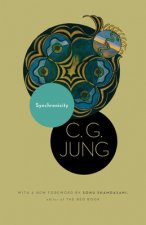
Synchronicity – An Acausal Connecting Principle
14.28 € -

A General Introduction to Psychoanalysis
5.52 € -25 % -

The Undiscovered Self
9.05 € -25 % -

Make It Stick
34.41 € -

The Sublime Object of Ideology
18.31 € -6 % -
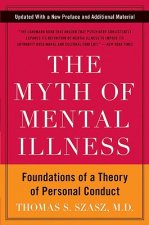
The Myth of Mental Illness
13.27 € -28 % -

Beyond the Pleasure Principle
4.32 € -18 % -

Archetypes and the Collective Unconscious
56.85 € -

Fertile Void
31.19 € -22 % -

Psycho-Analysis of Children
15.19 € -28 % -

Attachment Theory and Psychosis
51.01 € -
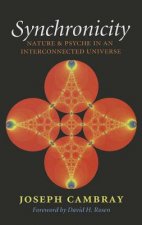
Synchronicity: Nature and Psyche in an Interconnected Universe
15.89 € -24 % -

Memories, Dreams, Reflections
13.37 € -27 % -
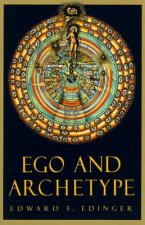
Ego and Archetype
23.14 € -14 % -

Emotional Intelligence
10.05 € -29 % -

Red Book
240.91 € -16 % -

Integral Psychology
19.92 € -26 % -

Home is Where We Start from
13.27 € -28 % -

T A Today
20.32 € -9 % -

Masculine and Feminine
22.83 € -25 % -

Civilization and Its Discontents
10.96 € -15 % -

Dreams
14.08 € -25 % -

Answer to Job
8.64 € -28 % -

Inner Gold
20.52 € -1 % -

Ego and the Id
3.81 € -18 % -

Jung's Studies in Astrology
49.10 € -5 % -

Two Essays on Analytical Psychology
14.78 € -

Handbook of Attachment
83.92 € -

Ego, Hunger and Aggression
39.04 € -

Red Book of C.G. Jung
41.85 € -

Touched With Fire
12.27 € -28 % -
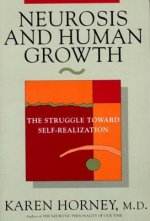
Neurosis and Human Growth
23.14 € -10 % -

Behavioural Economics: A Very Short Introduction
8.95 € -27 % -
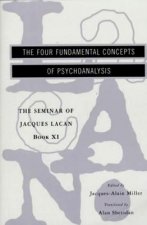
Seminar of Jacques Lacan
19.51 € -21 % -

Portable Jung
23.64 € -29 % -
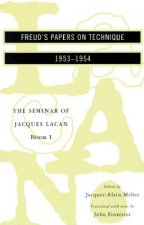
Seminar of Jacques Lacan
21.83 € -15 % -

Lucifer Principle
17 € -19 % -
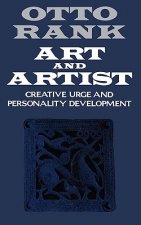
Art and Artist
28.27 € -14 % -

Ego and the Id - First Edition Text
7.03 € -

Practice and Theory of Individual Psychology
15.39 € -

Lament of the Dead
28.57 € -18 % -

PSYCHOPATHOLOGY & POLITICS
19.11 € -

Skin-Ego
54.74 € -

Eternal Drama
21.63 € -16 % -

On Being a Master Therapist - Practicing What You Preach
27.87 € -26 % -

Nature in Mind
36.32 €
Collection points Bratislava a 2642 dalších
Copyright ©2008-24 najlacnejsie-knihy.sk All rights reservedPrivacyCookies


 15549 collection points
15549 collection points Delivery 2.99 €
Delivery 2.99 € 02/210 210 99 (8-15.30h)
02/210 210 99 (8-15.30h)